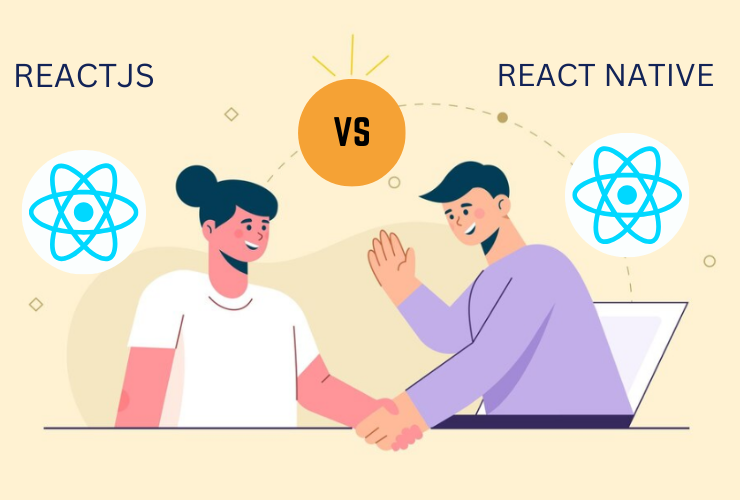With the fast pace of the contemporary digital age, businesses must catch up with the times through the use of robust, scalable, and high-performance web applications. The appropriate framework is at the center of these efforts. Among the top contenders, Google’s robust front-end web framework, Angular, is one of the most practical options for web development in the contemporary age.
Angular’s component-based architecture facilitates modular and maintainable development and easy construction of complex applications atop reusable components. Angular’s two-way data binding keeps the model and view synchronized automatically without explicit synchronization, reducing the time required.
One of Angular’s best features is how one can leverage it to enable cross-platform development so that businesses can create world-class Single Page Applications (SPAs) and Progressive Web Apps (PWAs) that are as useful on web, mobile, and desktop platforms. With feature support such as Ahead-of-Time (AOT) compilation for performance, server-side rendering (SSR) with Angular Universal for improved SEO, and strong security features for protecting data, Angular makes applications not just fast but also secure and crawlable by search engines.
Whether you’re an enterprise business operating enterprise-class applications or a startup looking to build an industry-disrupting digital product, Angular provides you with the tools, flexibility, and scalability to build rich feature applications that provide world-class user experiences. Companies with Angular also gain access to a large pool of developers, regular framework updates, and Google-backed long-term support, so that their apps are always up to date and future-proof.
Why is Angular a leading choice for web application development?
1. Google-Supported Stability & Long-Term Support
Developed and maintained by Google, Angular provides regular updates, long-term support, and stability. Companies employ Angular for their big applications because of its stability and security. Companies can rely on the support of a widely supported platform with ongoing refinement and performance tuning because Google supports Angular.
2. Scalability through Component-Based Architecture
Angular’s modular and component-based architecture makes it easy to develop, test, and maintain applications. The architecture divides applications into reusable and independent components, making development easier and more scalable. This modularity allows companies to scale and grow applications easily without rewriting the entire codebase.
3. Two-Way Data Binding for Real-Time Updates
Two-way data binding, one of the most impactful features of Angular, automatically refreshes model and view data. It eliminates DOM manipulation, reducing development time and application responsiveness. Updating is done in real time, providing users with a seamless interactivity experience, making Angular a great choice for dynamic applications.
4. Ahead-of-Time (AOT) Compilation with High Performance
Angular precompiles TypeScript in advance into optimized JavaScript using Ahead-of-Time (AOT) compilation. AOT delivers:
- Improved performance and faster loading
- Fewer runtime error
- Improved security in the form of early issue detection during development
- By avoiding as much of the JavaScript that has to execute in the browser as possible, AOT greatly enhances application performance.
5. Built-in Features to Enable Easy Development
Relative to other libraries that are third-party reliant, Angular is preloaded with a full suite of in-built tools and functionality including:
- Routing and navigation – Facilitates smooth page switching and deep linking
- Form handling and validation – Streamlines data intake and user input verification
- HTTP client for API communication – Enables effective data exchange with servers
- Animations – Provides more complete user experience with smooth transitions
- State management solutions – Improves app performance and user experience
These native characteristics allow web applications with rich, feature-heavy applications to be developed without any extra dependencies.
6. Cross-Platform Compatibility
Angular makes it possible for developers to develop apps that can execute on various platforms, including:
- Progressive Web Apps (PWAs) – Delivering app-like experiences in web browsers
- Single Page Applications (SPAs) – Offering fast, seamless navigation without page reloading
- Mobile and Desktop Apps – Leverage frameworks like Ionic or Electron to attain cross-platform support
7. Robust Security Features
Security is a concern when it comes to web development, and Angular reacts with security features that are native and include:
- Protection from Cross-Site Scripting (XSS) – Prevention of execution of malicious scripts
- Secure APIs communication – HTTPS and authentication best practices enforcement
- Strict data management policies – Safeguard against vulnerabilities and unauthorized access to data
These traits help organizations create secure web applications that protect customers from potential cyber attacks.
8. SEO Optimization using Angular Universal
For organizations dependent on natural search traffic, Angular Universal makes server-side rendering (SSR) possible, which greatly enhances SEO performance by:
- Improving search engine visibility
- Reducing page loading time
- Optimizing user experience and accessibility
Angular Universal makes it easier for search engines to index dynamic content, which enhances the search rankings of a site.
9. Enterprise-Grade Scalability
Angular is built for business apps, with:
- Type checking by TypeScript – Making the code strong and easy to maintain
- Modular architecture – Allowing easy management and scaling of sophisticated applications
- Robust development environment – With integrated debugging, testing, and optimization
This makes Angular a natural fit for businesses processing huge volumes of data, high user activity, and intricate workflows.
10. Rich Community & Ecosystem
Angular remains a good front-end framework with its huge global pool of developers, rich documentation, and continuous updates. The strong ecosystem offers:
- Continuous feature updates and improvements
- Rich tutorials, training programs, and documentation
- Huge pool of developer community to provide support and solve problems
The live support community ensures business corporations and developers are subjected to continuous new innovations and best web development practices.
Other Benefits of Angular
Increased Developer Productivity – Angular CLI (Command Line Interface) eases the process of development by making use of pre-configured project templates and scaffolding.
- Dependency Injection (DI) – Reduces the management of complexity of code for improving performance as well as maintainability.
- Rich UI/UX Features – Allows the support for Material Design as well as other UI frameworks in order to create rich-looking applications.
- Improved Support for Testing – Integrated testing tools like Jasmine and Karma allow decent application quality through the process of unit and end-to-end testing.
Angular is a high-performance, secure, and scalable front-end web development framework for the web era. Whether you are developing a startup website, an enterprise application, or a cross-platform application, Angular possesses the flexibility, productivity, and reliability to develop next-generation web applications.
With its stability guaranteed by Google, modular architecture, built-in security, and rich ecosystem, Angular remains the first preference of companies to develop high-performance web applications. Placing bets on Angular guarantees future-proof, scalable, and optimized development, thus making it the best option for companies in current times.
Contact Us Today













 Database Development
Database Development












































